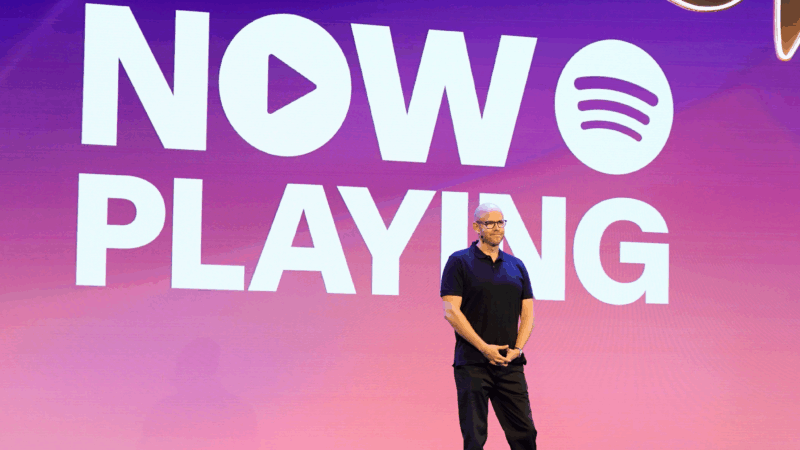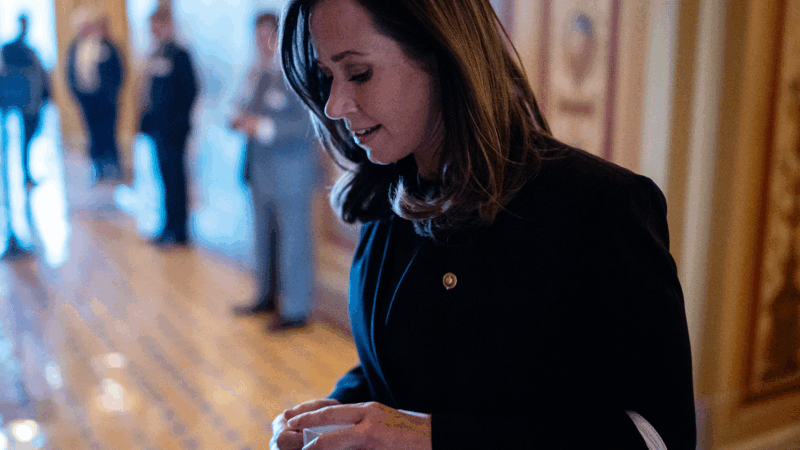Spotify’s Daniel Ek announces that he’ll step aside as CEO
Daniel Ek, who co-founded Spotify and has been the most visible face of the company as it has grown into the world’s biggest music streaming service, has announced that he will step down as the streaming giant’s chief executive in January.
Ek will remain with the company. He will transition to a new role of executive chairman, while Chief Product and Technology Officer Gustav Söderström and Chief Business Officer Alex Norström will step up into co-CEO roles. In a press release, the company commended the work of Söderström and Norström, who became co-Presidents of Spotify in 2023, calling this a development that solidifies the company’s new leadership structure.
“I always believed that Spotify could play an important role in revolutionizing listening around the world, and with more than 700 million users, we’ve truly charted a new course bringing creativity to every corner of the globe,” Ek said in a statement. “Over the last few years, I’ve turned over a large part of the day-to-day management and strategic direction of Spotify to Alex and Gustav — who have shaped the company from our earliest days and are now more than ready to guide our next phase. This change simply matches titles to how we already operate. In my role as Executive Chairman, I will focus on the long arc of the company and keep the Board and our co-CEOs deeply connected through my engagement.”
Spotify launched in Sweden in 2006 as a music streaming service and has expanded globally, and come to include other formats like podcasting, audio books and video. For over a decade, artists have criticized the company over the amount of money it pays musicians. In recent months, the company has faced mounting pressure from artists exiting or threatening to exit the platform in protest of Ek’s ties to a tech defense company. In June, the Swedish businessman’s venture capital firm, Prima Materia, invested more than $700 million into Helsing, a German startup that develops military technology. Since then, indie rock bands including Deerhoof, Xiu Xiu and Hotline TNT have removed their music from Spotify. On Sept. 18, Massive Attack became the first major label band to join the exodus.
“The economic burden that has long been placed on artists is now compounded by a moral & ethical burden, whereby the hard-earned money of fans & the creative endeavours of musicians [ultimately] funds lethal, dystopian technology,” that group wrote on Instagram. “Enough is more than enough. Another way is possible.”
On Sept. 30, the same morning that Ek announced he would be exiting the CEO role, Grammy-nominated duo Sylvan Esso removed its discography from the streaming service. Spotify has declined to comment on the decisions of artists to leave the service. Earlier this month, Helsing issued a statement regarding the ongoing criticisms.
“Currently we see misinformation spreading that Helsing’s technology is deployed in war zones other than Ukraine. This is not correct,” the statement reads. “Our technology is deployed to European countries for deterrence and for defence against the Russian aggression in Ukraine only.”
In the past, artists including Thom Yorke and Taylor Swift have temporarily removed their music from Spotify to protest low royalty payouts. In 2022, Neil Young and Joni Mitchell boycotted the platform over its exclusive distribution deal with Joe Rogan, citing concerns that the podcaster was spreading COVID-19 vaccine misinformation on The Joe Rogan Experience. Both artists returned once Rogan’s massively successful podcast became available on more streaming services.
In a publicly-shared letter to employees, Ek made no mention of artist protests. Instead, he emphasized his new role will fit a European standard of executive chairman, which he described as a “hands on” focus on long-term strategy and capital allocation. Last year marked the company’s first full year of profitability. In the letter, Ek also referenced his involvement in the growth of other European companies.
“A personal note on what’s next for me. I am often asked, ‘How do we build more Spotifys out of Europe?’ That’s why several years ago, I announced my intention to help create more of these supercompanies — companies that are developing new technologies to tackle some of the biggest challenges of our time,” he wrote. “I’ll share more about how I’ll put some of my builder energy there. But today is about Spotify.”
Baz Luhrmann will make you fall in love with Elvis Presley
The new movie is made up of footage originally shot in the early 1970s, which Luhrmann found in storage in a Kansas salt mine.
My doctor keeps focusing on my weight. What other health metrics matter more?
Our Real Talk with a Doc columnist explains how to push back if your doctor's obsessed with weight loss. And what other health metrics matter more instead.
Forget the State of the Union. What’s the state of your quiz score?
What's the state of your union, quiz-wise? Find out!
SNL mocked her as a ‘scary mom.’ In the Senate, Katie Britt is an emerging dealmaker
Sen. Katie Britt, Republican of Alabama, is a budding bipartisan dealmaker. Her latest assignment: helping negotiate changes to immigration enforcement tactics.
As the U.S. celebrates its 250th birthday, many Latinos question whether they belong
Many U.S.-born Latinos feel afraid and anxious amid the political rhetoric. Still, others wouldn't miss celebrating their country
A team of midlife cheerleaders in Ukraine refuses to let war defeat them
Ukrainian women in their 50s and 60s say they've embraced cheerleading as a way to cope with the extreme stress and anxiety of four years of Russia's full-scale invasion.








